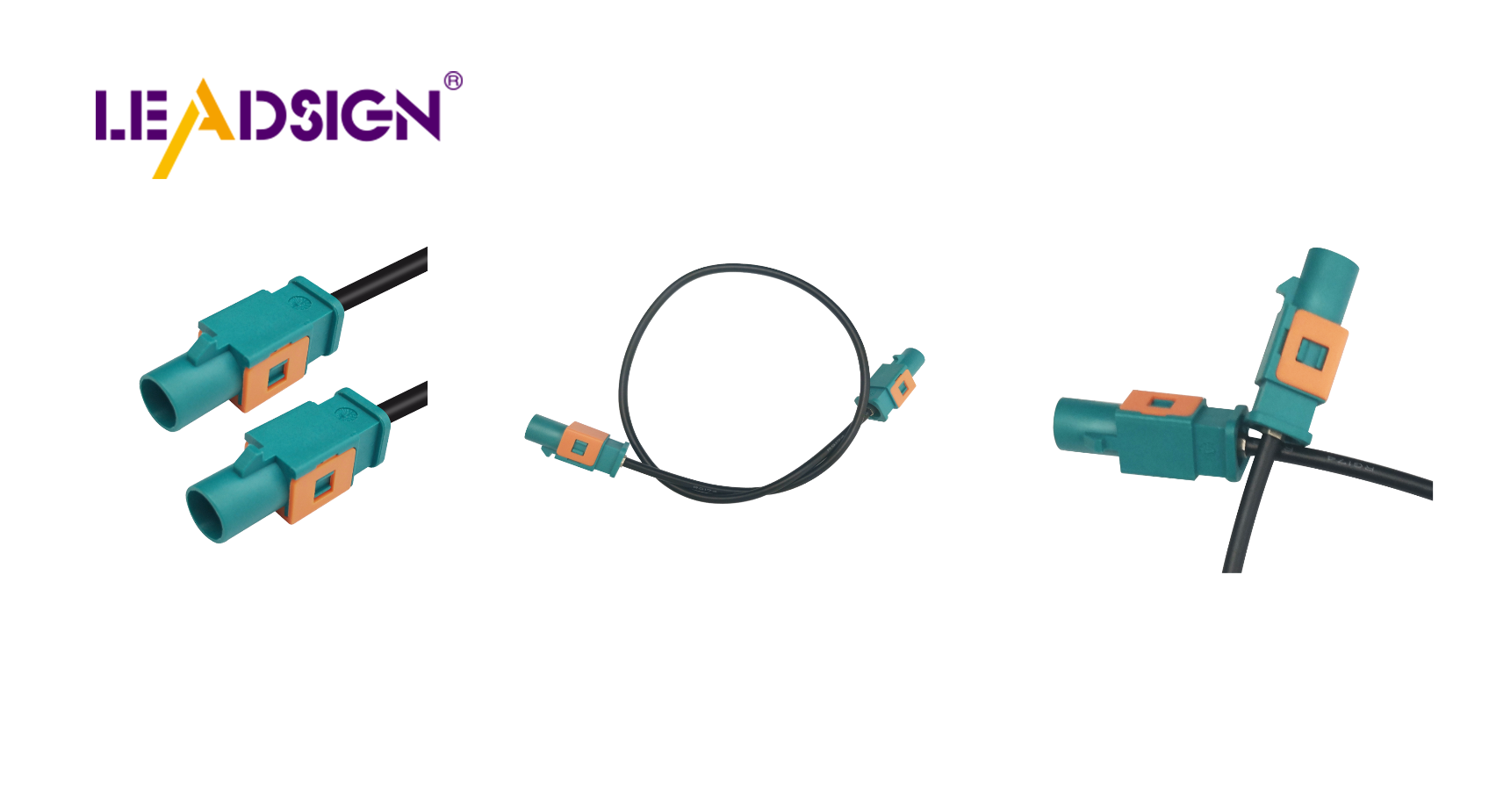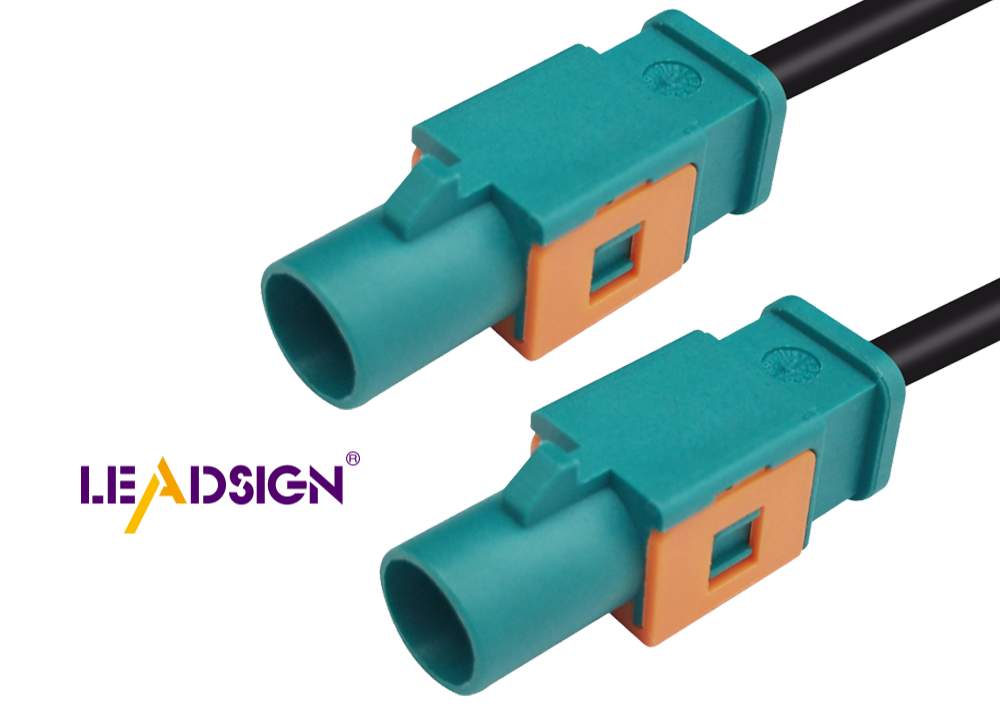Automotive Electrical Connectors Types: The Ultimate Guide

Car electrical connectors, including various car wire connector types, play a crucial role in ensuring the optimal performance and safety of vehicles. These connectors are essential for the functionality and reliability of cars, especially with the increasing presence of electric vehicles. The diversity of car wire connector types available in the market significantly impacts the overall efficiency and operation of modern vehicles.
Understanding Automotive Electrical Connectors
What are Automotive Electrical Connectors?
Definition and Basic Function
Car electrical connectors are key parts in car systems. They help connect different electric parts, making sure the car runs well. These connectors come in many sizes and shapes to fit needs like wire size and power use. Picking the right connector is important for keeping cars safe and working well.
Importance in Modern Vehicles
In today's cars, these connectors matter a lot. As cars get more techy, we need better connectors for safety and comfort. They must handle more data and complex systems. Good connectors make cars reliable and perform better, so they are very important now.
Key Components of Connectors
Terminals
Terminals are the main part of any connector. They link wires or parts together securely. The design and material used affect how well they work, like how good they conduct electricity or resist rust.
Housings
Housings keep connector insides safe from things like water or dust. They also hold terminals firmly in place. The material choice can change how strong and lasting the connector is.
Seals
Seals are vital for keeping car connectors clean inside. They stop water and dirt from getting in, which could cause problems. Good seals are needed for tough conditions to keep them working safely over time.
Types of Automotive Electrical Connectors

Blade Connectors
Features and Applications
Blade connectors, also called spade connectors, are used a lot in cars. They have a flat metal piece that fits into a slot. This makes connecting easy and fast. They are great for places where you need to unplug often. You can find them in car radios, lights, and low-power uses.
Advantages and Disadvantages
Advantages:
Ease of Use: They are simple to install and remove, making fixes easy.
Versatility: Come in different sizes and materials for various wires.
Disadvantages:
Limited Current Capacity: Not good for high power because of their design.
Potential for Loose Connections: Can get loose over time, causing problems.
Pin Connectors
Features and Applications
Pin connectors, or male connectors, have pins that fit into sockets. They help send signals and power in cars. Used in engine controls, sensors, and important car parts.
Advantages and Disadvantages
Advantages:
Secure Connection: Pins fit well into sockets, reducing disconnection risk.
High Current Capacity: Good for high power needs due to strong design.
Disadvantages:
Complexity: Needs careful alignment during setup which can be tricky.
Cost: More costly than simpler types because they are strong.
Butt Connectors
Features and Applications
Butt connectors join two wires end-to-end like a tube. Often used for fixing or changing car wires. They give safe connections in tight spots.
Advantages and Disadvantages
Advantages:
Simplicity: Easy way to join wires without extra tools needed.
Insulation: Keeps moisture out protecting the connection well.
Disadvantages:
Limited Flexibility: Hard to disconnect or change once set up.
Potential for Weak Joints: Bad setup can make weak joints causing issues later.
Car Wire Connector Types
FAKRA Connectors
FAKRA connectors are special car connectors. They are made for tough car needs. These connectors work with things like car radios, GPS, and Bluetooth. They make sure connections are strong and safe because of their sturdy design.
Key Features of FAKRA Connectors:
Impedance: 50 Ω, good for high-frequency use.
Frequency Range: Works from DC to 6 GHz, handles data up to 8 Gbps.
Temperature Range: Works well between -40 °C and +105 °C.
Durability: Can be used ≥ 25 times without breaking.
Locking Systems: Two locks keep them very secure.
FAKRA connectors have different housings. This saves space and makes plugging in easy. Some are waterproof, great for bad weather. Because they are so useful, many new cars use them.
Other Specialized Connectors
Besides FAKRA, there are other special car connectors. They help cars work better and last longer. These connectors do things like send fast signals or combine tasks.
Examples of Specialized Connectors:
High-Speed Connectors: Used when quick signals are needed in cars.
Integrated Connectors: Do many jobs at once, saving space and making systems better.
Car connectors differ from cable ones as they meet strict car standards. They make fixing cars faster and easier during repairs or check-ups.
Picking the Best Connector
Things to Think About
Choosing the right car connector needs careful thought. These points help make sure the connector fits the car's needs and works well.
Power Needs
A car's power needs decide which connector to use. Connectors must handle specific voltage and current levels. For example, FAKRA connectors work up to 6 GHz and manage 335 volts RMS all the time. They are great for things like GPS and Bluetooth. It's important that a connector's power matches what the car needs.
Weather Conditions
Car connectors need to survive different weather conditions like heat, cold, wetness, and shaking. FAKRA connectors have strong plastic covers that protect from dirt and weather changes. They work well between -40°C to +105°C. Picking connectors with good seals ensures they last in tough places.
Fit with Car Systems
Connectors must fit with a car's systems when chosen. They should match perfectly with the car’s electrical setup. FAKRA connectors have colors and keys to stop wrong matches, making sure they fit right in the car’s network. This helps avoid mistakes during setup.
Mistakes Not to Make
Avoiding common errors in picking connectors can stop problems later and keep a car’s systems running well.
Wrong Size Choice
Picking a wrong-sized connector can cause bad connections or system issues. It’s key to match connector size with wire thickness and job needs. Wrong sizes may lead to loose links or weak power flow, hurting how a car runs.
Overlooking Weather Effects
Ignoring weather effects can make connectors fail early. Connectors facing wetness, extreme heat or cold without protection might break fast. Choosing ones with waterproofing like FAKRA connectors helps reduce these risks and makes them last longer.
By thinking about these points and avoiding usual mistakes, people can pick good car electrical connectors for safe vehicle operation.
Troubleshooting and Maintenance
Common Problems with Connectors
Car electrical connectors are important but can have problems. Finding these issues early stops bigger failures.
Rusting
Rust is a common problem for car connectors. Water and road salt cause rust, which stops electricity from flowing well. This makes the car's electric system work poorly or fail. Being in tough places makes rust happen faster, so fixing it quickly is important.
Loose Connections
Loose connections happen when connectors aren't tight. The car moving can make them loose over time. This causes electric problems that are hard to find. Keeping connectors tight helps keep electricity flowing well.
Fixes and Prevention Tips
Using good fixes and prevention tips can make car connectors last longer and work better.
Regular Checks and Cleaning
Checking and cleaning connectors often stops rust and keeps them working well. Workers should look for rust or dirt on connectors regularly. Cleaning with the right stuff removes things that might hurt the connector. This not only makes them last longer but also keeps the car running smoothly.
Correct Installation Steps
Correct installation steps stop loose connections. Workers must make sure connectors are tight when put in place. Using the right tools and following rules prevents bad installation problems. Also, using special grease keeps water away, reducing rust risk.
"Choosing the right cables and connectors is key for safe car projects."
By following these rules, car workers keep vehicle electric systems safe and working well. Regular care and careful setup help connectors work right, making cars run smoothly.
Choosing the right car electrical connectors is very important. It helps cars work well and stay safe. Automotive Wire Harness Connectors: The Ultimate Guide talks about why things like current rating, wire size, and connector material matter. These parts help keep cars running reliably today. As technology grows, car connectors get better too. They last longer and work more efficiently now. Car owners and repair people should learn about these changes. This helps them make smart choices so their cars run smoothly and safely.
See Also
Exploring the Fundamentals of HSD Connectors in Automotive Sector
Navigating Ford's Fakra Connector Solutions
The Significance of FAKRA Connectors in Auto Uses

